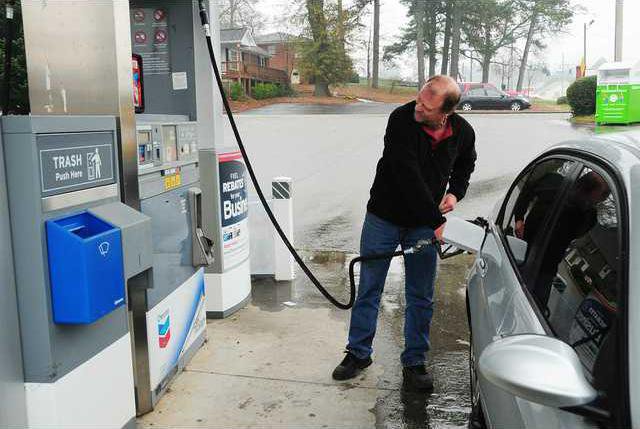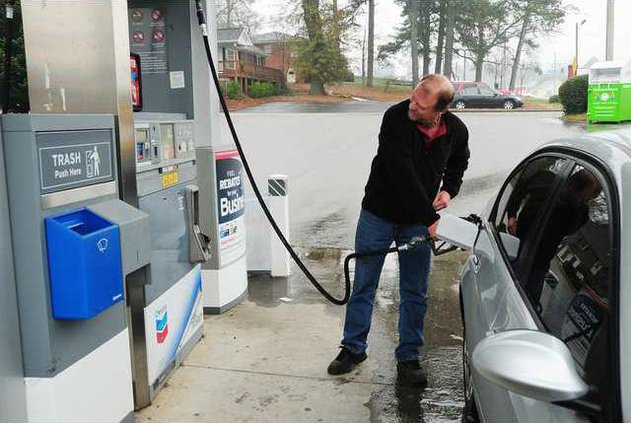Drivers traveling through Gainesville this week may have seen a big disparity in gas prices.
Within a half-mile stretch of Thompson Bridge Road on Tuesday, prices ranged from $2.99 to $3.17.
For Don Wade, who was filling up his red Ford F-350 at the most expensive station on the street, the prices didn't mean too much.
"I don't look at prices. I look at convenience," said Wade, owner of Wade Tree Service.
Wade admitted that while he picks a station based on what saves him time, he is probably in the minority.
As holiday travel picks up and drivers find themselves on the road filling up their tanks more often, many likely will be looking for the best deal.
Oftentimes, there are multiple factors that play into gas prices.
"It's incredibly complex," said Patrick DeHaan, a senior petroleum analyst for GasBuddy.com.
The website tracks gas pricing trends and offers tips for customers.
According to GasBuddy.com, which provides data to The Times that can be found online, the highest gas price in Gainesville on Tuesday was $3.25 and the lowest was $2.97.
Today could be a whole new set of numbers.
DeHaan said there are several factors in play when determining prices.
Sometimes gas station owners have control over those factors, but many are out of their hands.
Akbar Dhannani's Chevron station on Thompson Bridge Road was nearly 20 cents per gallon more expensive than other stations in town on Tuesday.
Dhannani admitted he would prefer to stay competitive, but he would be losing money if he sold gas any cheaper.
That's because gasoline was more expensive when he stocked up earlier this month.
Gas station operators get their gas from stations that sell fuel in bulk.
Because fuel prices vary from day to day, gas station operators can end up buying weeks worth of gasoline for their station only to see a drastic shift in prices from their competitors.
The last time Dhannani bought gas for his Thompson Bridge Road station earlier this month, he paid $2.67 per gallon, according to his records.
If you add the roughly 50 cents in taxes customers pay for gas that brings the total to about $3.17.
Which means, Dhannani said, if he brought his prices any lower, then he'd be losing money for every gallon of gas he sold.
Behind the bullet proof windows that protect the cashier's stand, Dhannani pulled up a website on the store's computer that shows how much it costs gas stations to purchase fuel on Tuesday.
The price was about 14 cents cheaper than what he paid two weeks ago.
Gas stations that have bought fuel more recently have paid much less than what Dhannani did, he said.
Timing is not the only factor, however.
Prices that operators pay for fuel also depends on the brand of gas.
"I can almost guarantee you every station is paying a different price for gas," DeHaan said.
Big gas brands like Chevron, BP, Exxon and Shell tend to cost more than independent gas sellers.
Not all gas station are forced to determine prices based on timing and brand.
Location can also play a role in how much a station owner may try to charge.
Gas stations in more affluent areas tend to charge more because they can, DeHaan said, while stations surrounded by lower prices must stay competitive.
It's basic supply and demand.
"The name of the game for gas prices is to have the highest amount possible and still have enough customers come," he said.
Fortunately for Dhannani, customers have not stopped coming into his store with his prices.
While gas sales have slowed, a steady stream of customers was still coming into his store to pay for items that Dhannani could make a profit on: food, drinks, cigarettes and lottery tickets.

